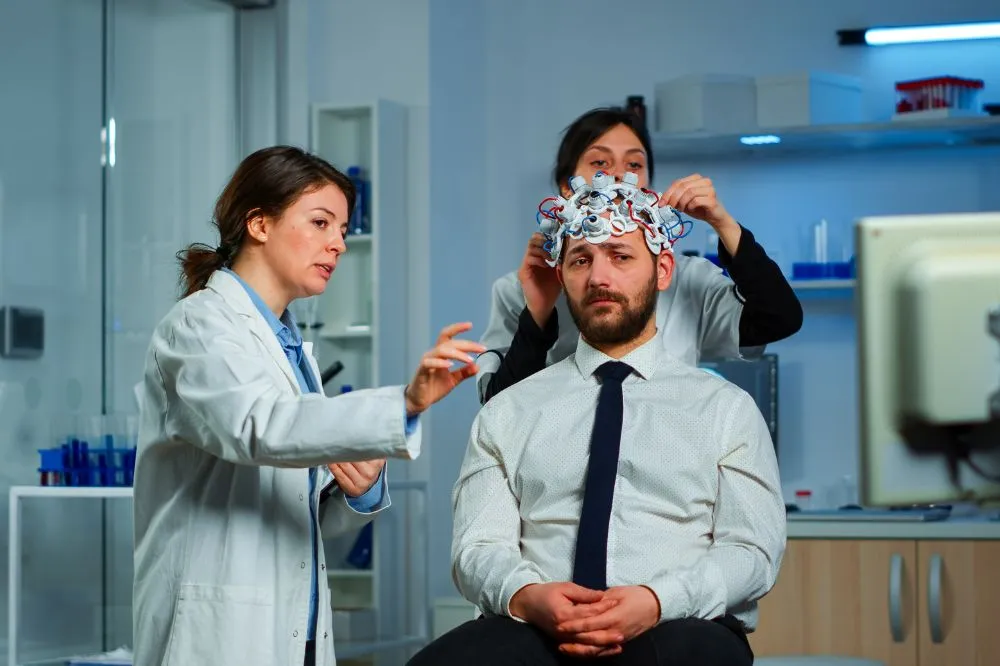Summary: Alzheimer’s is among the most common neurodegenerative disorders. There are no medical drugs that can cure it. A new study shows that high omega-3 intake at a young age is a way to improve brain function and have higher hippocampal volume. Thus, higher omega-3 intake at a young age may help reduce the risk of developing Alzheimer’s later in life and promote mental health improvement.
As people live longer, brain disorders continue to increase. Though there are many neurodegenerative disorders, Alzheimer’s is particularly a cause of concern. There are already 6.5 million Americans living with the condition, and these numbers are expected to keep rising.
Currently, no drug can help prevent Alzheimer’s or reverse it. Medications used to treat Alzheimer’s can only slow down its progress.
More than a century of research into the subject has failed to provide sufficient information about the condition. Studies show that people are more likely to be diagnosed with the condition after the age of 65, though some might be diagnosed earlier.
Nonetheless, studies do provide some valuable information. It appears that Alzheimer’s starts much earlier than its diagnosis. One develops its symptoms only when considerable damage has been done. Therefore, any measure to reduce Alzheimer’s risk must be initiated early.
Though doctors cannot reliably assess the risk of Alzheimer’s in all patients, studies show a high association of the condition with genetics. For example, those who carry the APOE4 gene are at considerable risk of developing Alzheimer’s later in life. Thus, these individuals can start their efforts to prevent disease early, even if they do not have any symptoms of the condition.
Many nootropics can boost various brain functions. However, it is unclear what health supplements may really help reduce the risk of Alzheimer’s. Now a new study provides sound evidence that high omega-3 intake may be associated with better brain health and may help reduce Alzheimer’s risk.
It is no secret that omega-3 fatty acids are good for brain health. Among three omega fatty acids, docosahexaenoic acid (DHA) and eicosapentaenoic acid (EPA) are especially good for brain health. Many clinical studies have shown that they are suitable for brain development, help considerably improve metabolic health, and boost various brain functions.
Now a new study shows that the benefits of omega-3 intake can even be visualized using brain scans. Those with high omega-3 intake have visibly higher hippocampal volume, a brain area associated with memory and learning.
A study in 2,183 healthy individuals who were dementia and stroke-free found that if one starts taking omega-3 fatty acids in middle age, it may significantly reduce the risk of neurodegenerative disorders. In addition, omega-3 may help high-risk individuals like those with the APOE4 gene variant.
In the study, researchers noted higher hippocampal volume associated with higher omega-3 intake and found that omega-3 fatty acids helped improve reasoning and other brain functions. Not only that but omega-3 also helped by improving the functioning of small blood vessels in the brain.
In their study, researchers divided participants into two groups, one with a very low omega-3 concentration in their blood cells and another group with a relatively high omega-3 concentration in their blood.
Most of the benefits mentioned above were only seen in those with high omega-3 fatty acids in blood cells. This is the first study to show such a relation between high omega-3 fatty acids intake and brain health in young adults.
Needless to say, those with healthier brains in middle life are also less likely to develop Alzheimer’s. It means that higher omega-3 intake is especially vital for high-risk individuals.
Omega-3 fatty acid intake may not reverse Alzheimer’s and may have little benefit when living with the condition. However, it means that omega-3 fatty acids would help more when their intake is increased much before the disease starts developing.
It means that low omega-3 fatty acids in the blood cells must be regarded as a modifiable risk factor for Alzheimer’s.
Are Opioids Helpful In Mental Health Improvement
There are cases of people who have a drug addiction or alcohol dependence history. In such cases, doctors might prescribe alcohol dependence treatment and addiction treatment programs while managing the symptoms of Alzheimer’s. These can also include suboxone treatment and opioid addiction treatment for mental health improvement.






